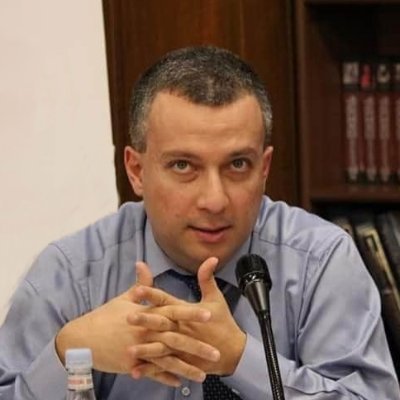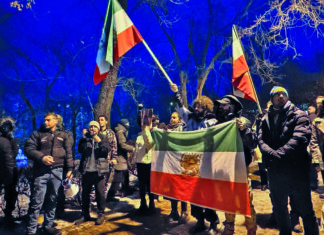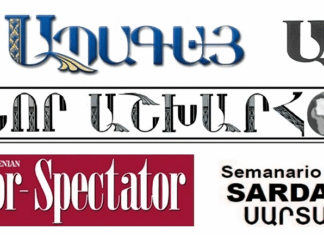The 2007-2008 world financial crisis triggered discussions about the inevitable decline of the post-Cold War unipolar order, marked by absolute US hegemony. The Arab Spring, the 2014 Ukraine crisis, the Syrian civil war, and the botched US withdrawal from Afghanistan in 2021 contributed to the ongoing debate about the relative decline of the US and the rise of other powers. The growing influence of non-Western institutions, such as the association of Brazil, Russia, India, China and South Africa (BRICS) and the Shanghai Cooperation Organization (SCO), attempts to abandon the US dollar in bilateral trade, and the establishment of alternative international financial institutions, such as the New Development Bank of BRICS and the Asian Infrastructure Investment Bank, seemed to shatter the undisputed leadership of Western political and financial institutions and the role of the US dollar as the only global reserve currency. The growing economic and military strength of China, the more assertive foreign policy of Russia, and India’s balanced foreign policy seeking to pursue cooperative relations with the West and Russia were signs of the changing nature of international relations.
However, no event was as loud a confirmation of the end of the post-Cold War unipolar era as the 2022 war in Ukraine. Despite strict and explicit warnings from the collective West that an attack against Ukraine would result in strict actions against Russia, including economic sanctions and military support to Ukraine, Russia launched a “Special Military Operation” on February 24, 2022. Only 20 years ago, the likelihood of such an action was close to nil. At that time, only the US could afford to launch military actions against other countries despite widespread criticism and condemnation. In March 2003, the US invaded Iraq without any international mandate, ignoring the resistance of Russia, France, Germany, China, and other states. In March 1999, NATO launched a military attack against Serbia, despite the intense criticism of Russia and China, sending a clear signal to everyone that Russia and others may say what they want, but the US and its allies would do what they want.
Perhaps the crisis in Syria was the first sign of the changing nature of international relations. In 2013, US President Obama demanded President Bashar Al-Assad’s resignation and stated that using chemical weapons would be a red line for the US to react militarily. However, despite the US assertion that, in August 2013, Assad used chemical weapons, the US avoided military action, instead opting to work with Russia to push chemical weapons out of Syria through the relevant UN Security Council resolution.
The war in Ukraine has sent global shockwaves. It made it clear that the post-Cold War era was over, as was stated by US Secretary of State Blinken on March 23, 2023, as he testified before the House Committee on Appropriations. However, debates continue on the nature of the new world order. Some experts in the West seek to depict the new world order as a fight between democracies and autocracies, where everything is white or black. Some good guys are fighting bad guys. According to this narrative, the democratic and free world is led by the US, while Russia and China lead the authoritarian states. In this white and black world, every state should choose to be on the right or wrong side of history and pay the price for its choice. This narrative brings us back to the Cold War when the US led the free world in its fight against the “Evil Empire.” Now the US again should lead the free world in the new fight against new “bad actors.” Perhaps the only difference is the fact that during the original Cold War, the US was fighting the Soviet Union, having the support of China. Now China is the only long-term strategic competitor to the US. Russia is perceived as a weak actor, which can spoil the game, but ultimately, it will join China as a junior partner to resist the US.
However, this vision of a “good vs. evil” or “democracy vs. authoritarianism” world is not entirely in line with reality. Many countries do not want to make a choice and join either the US or the China/Russia camp. Even more, some significant actors believe that the new world should not be a remake of the original Cold War, with two main actors. They believe that the world should be multipolar. In this context, India is the most vivid example. While developing a strategic partnership with the US in bilateral and multilateral formats, such as QUAD (Quadrilateral Security Dialogue, with the US, India, Australia and Japan) and I2U2 (a partnership between the governments of India, Israel, the United Arab Emirates and the United States), India continues its partnership with Russia, rejecting Western calls to impose sanctions on Moscow. India believes the new world should not be bipolar, dominated by China and the US. Other rising states, such as Brazil, also do not support the new bipolar vision of the future world, where good actors should rally behind the US to counter the China-led bloc. It is challenging to assess the final counters of the emerging world order; however, international relations are too complex to be put into the “good vs. evil” framework.








